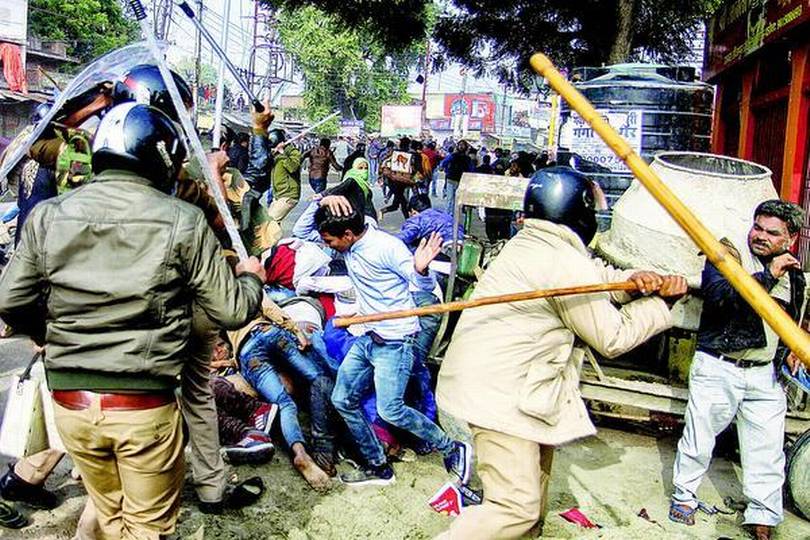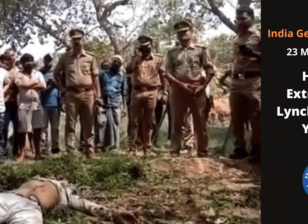The Hindu Frontline: Uttar Pradesh’s Muslims bear the brunt of Yogi Adityanath’s politics of “badla”
The Uttar Pradesh government has employed brazen, unlawful tactics, including extreme torture and physical violence, to harass and intimidate citizens, especially Muslims, who protested against the Citizenship Amendment Act last December.
Uttar Pradesh was no exception to the protests that erupted across India against the Citizenship Amendment Act (CAA), National Register of Citizens (NRC) and National Population Register (NPR) in December 2019. From the State capital Lucknow to cities such as Kanpur and Allahabad to Deoband, the headquarters of the world-renowned Islamic seminary Darul Uloom, to smaller towns such as Sambal, Muzaffarnagar, Rampur and Moradabad, the State saw a series of democratic agitations against the CAA-NRC-NPR, with Muslim women leading the protests at most places. In response to these protests, Chief Minister Yogi Adityanath talked of “badla” (revenge). To be a protestor is to be a dissenter in Uttar Pradesh. And to be a dissenter is akin to being a traitor.
The Bharatiya Janata Party (BJP) government came down hard on the peaceful protests everywhere. In Lucknow, women who sat on a round-the-clock dharna at the iconic Clock Tower were lathi-charged, with the State police taunting them on their slogans of “azadi” (freedom). Their tents were reduced to shreds, their blankets and biscuits were confiscated. In the indiscriminate attack, nobody was spared.
The veteran human rights activist Mohammed Shoaib, who is also the president of the rights body Rihai Manch, was first placed under house arrest on December 18, then arrested the next day. He was accused of leading a protest that allegedly turned violent, even though he had already been arrested by then. While he was released on bail a few weeks later, his predicament summed up the plight of Muslims in the State. Neither secular accomplishments nor a lifelong commitment to justice for all were enough to protect oneself from police excesses. Later, in an interview with Frontline, Mohammed Shoaib pledged: “We have to keep fighting hard.”



